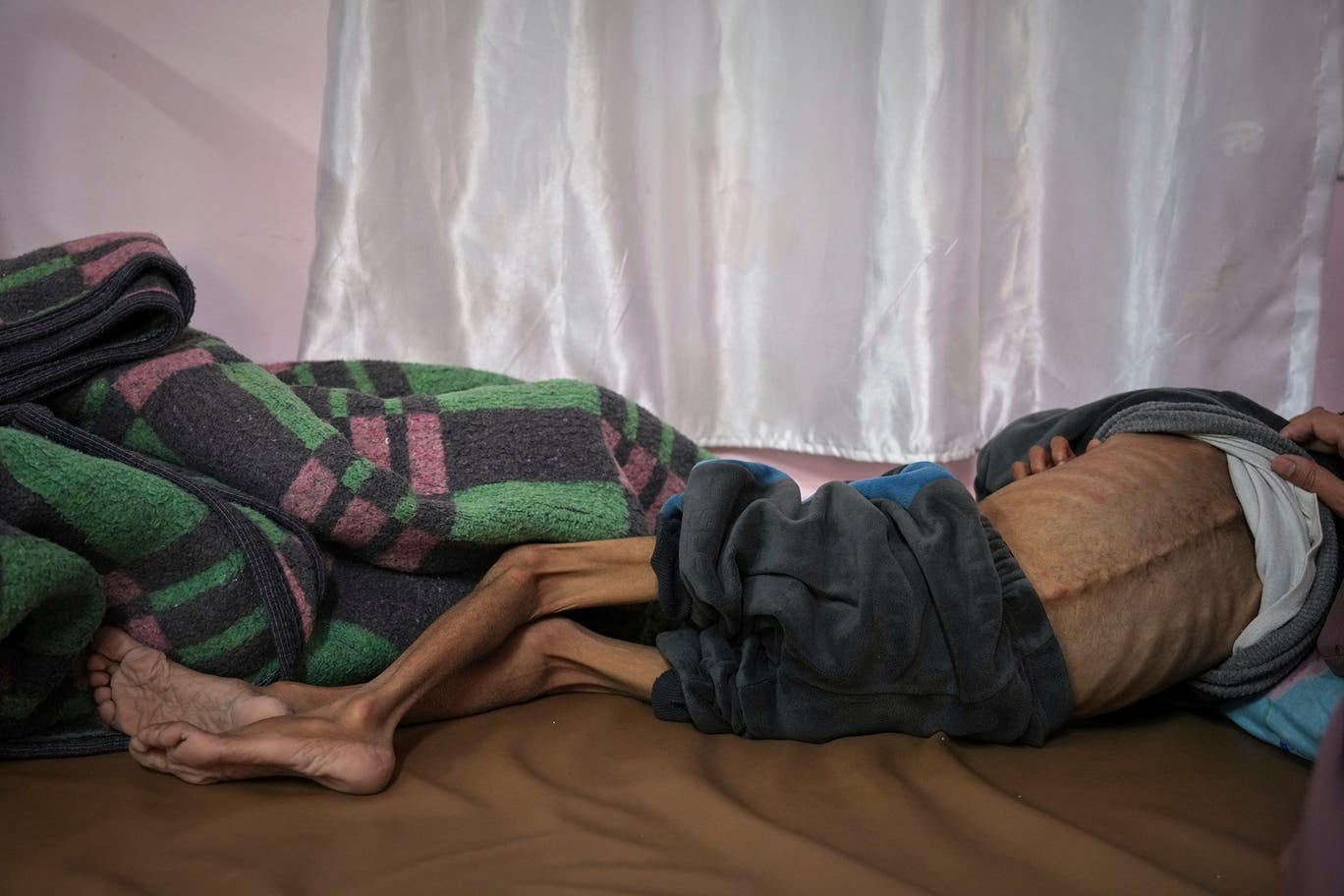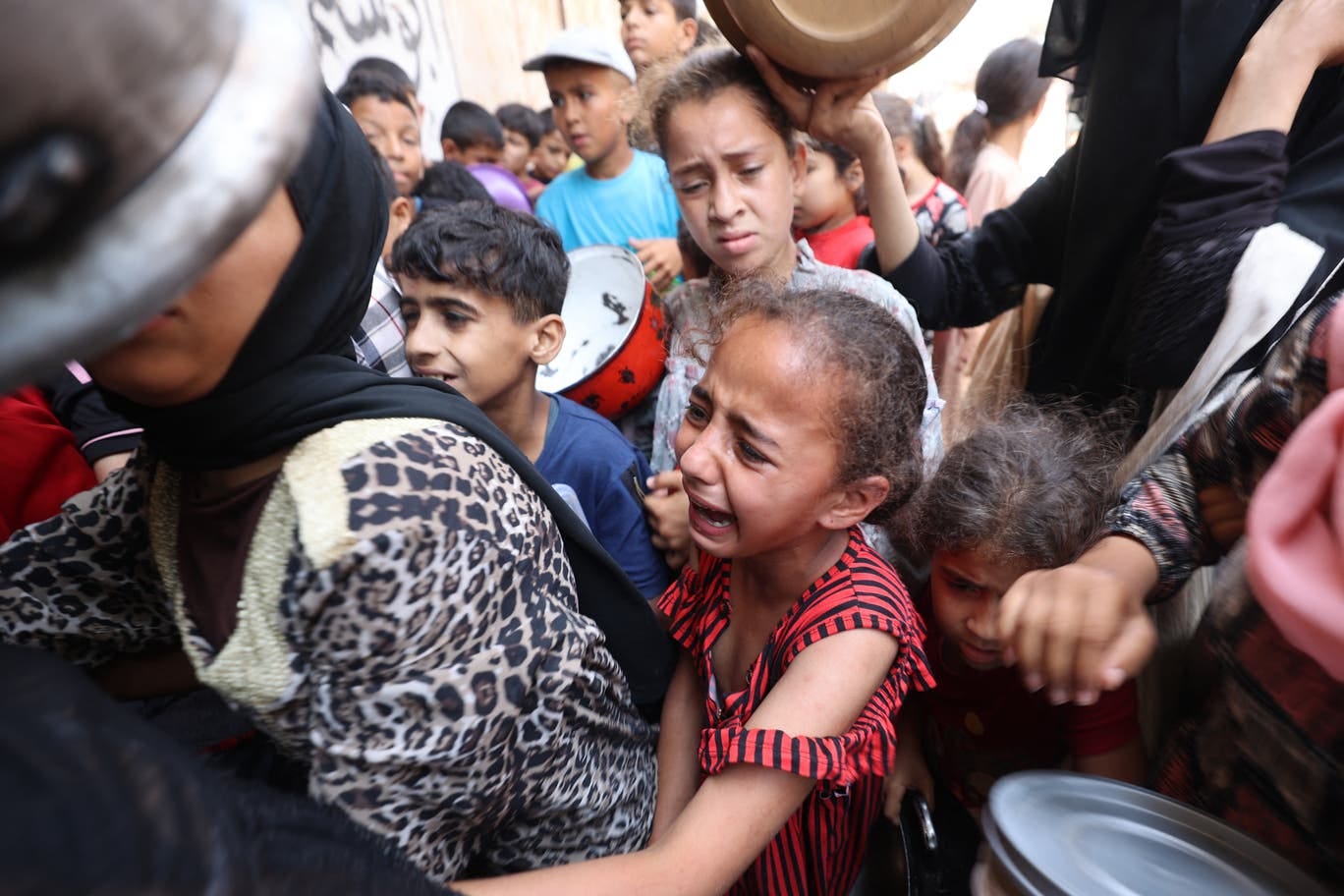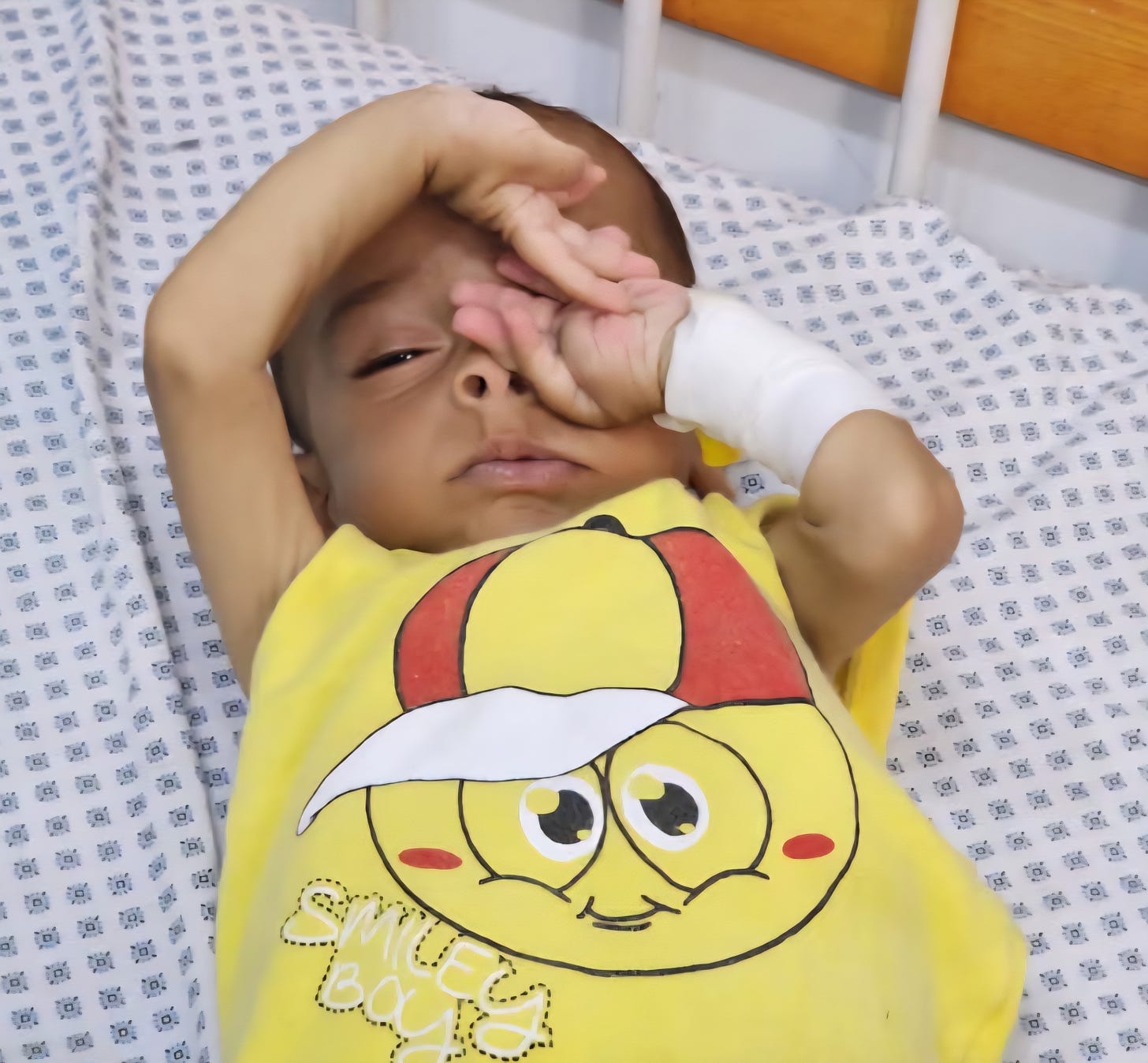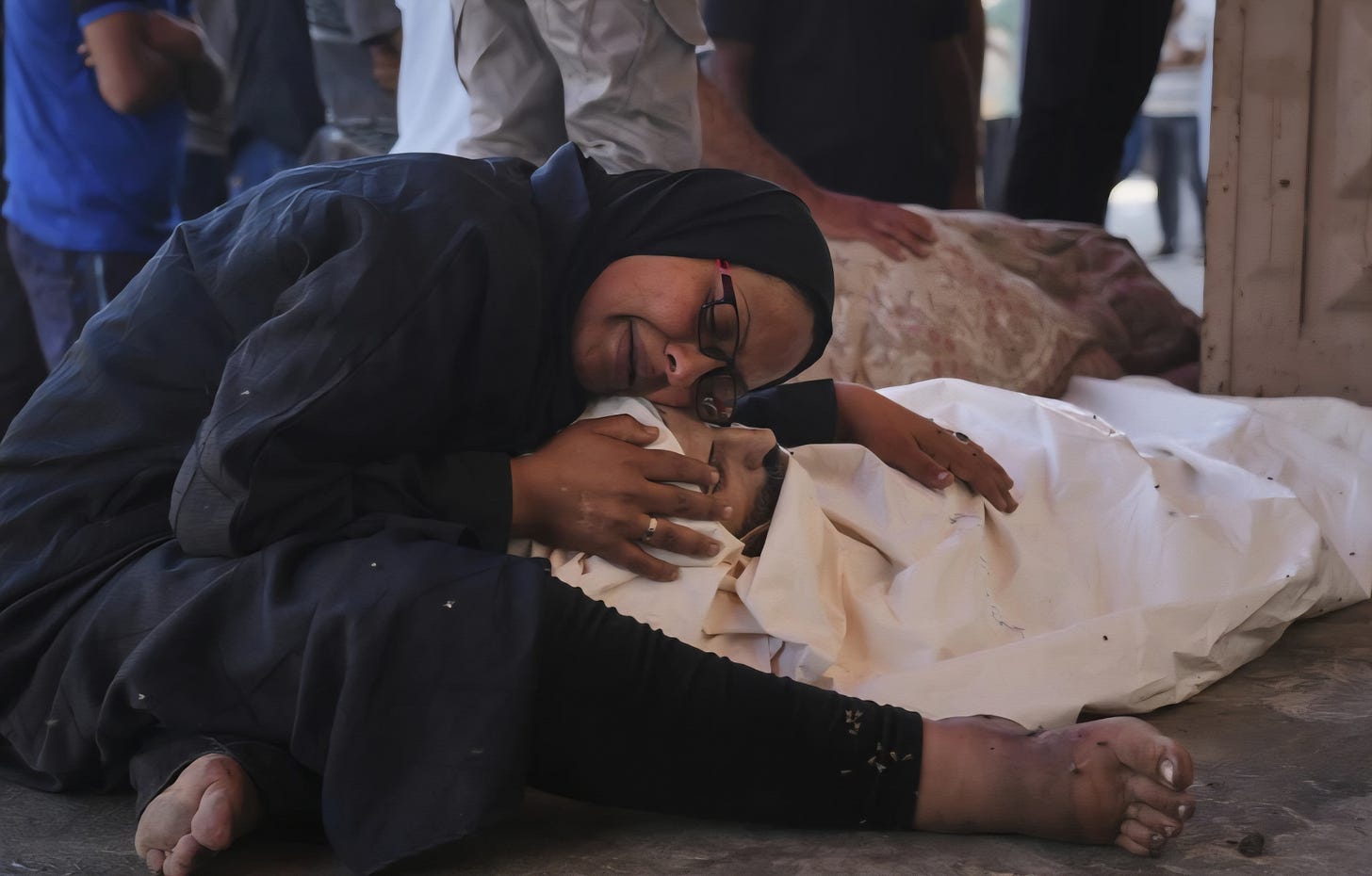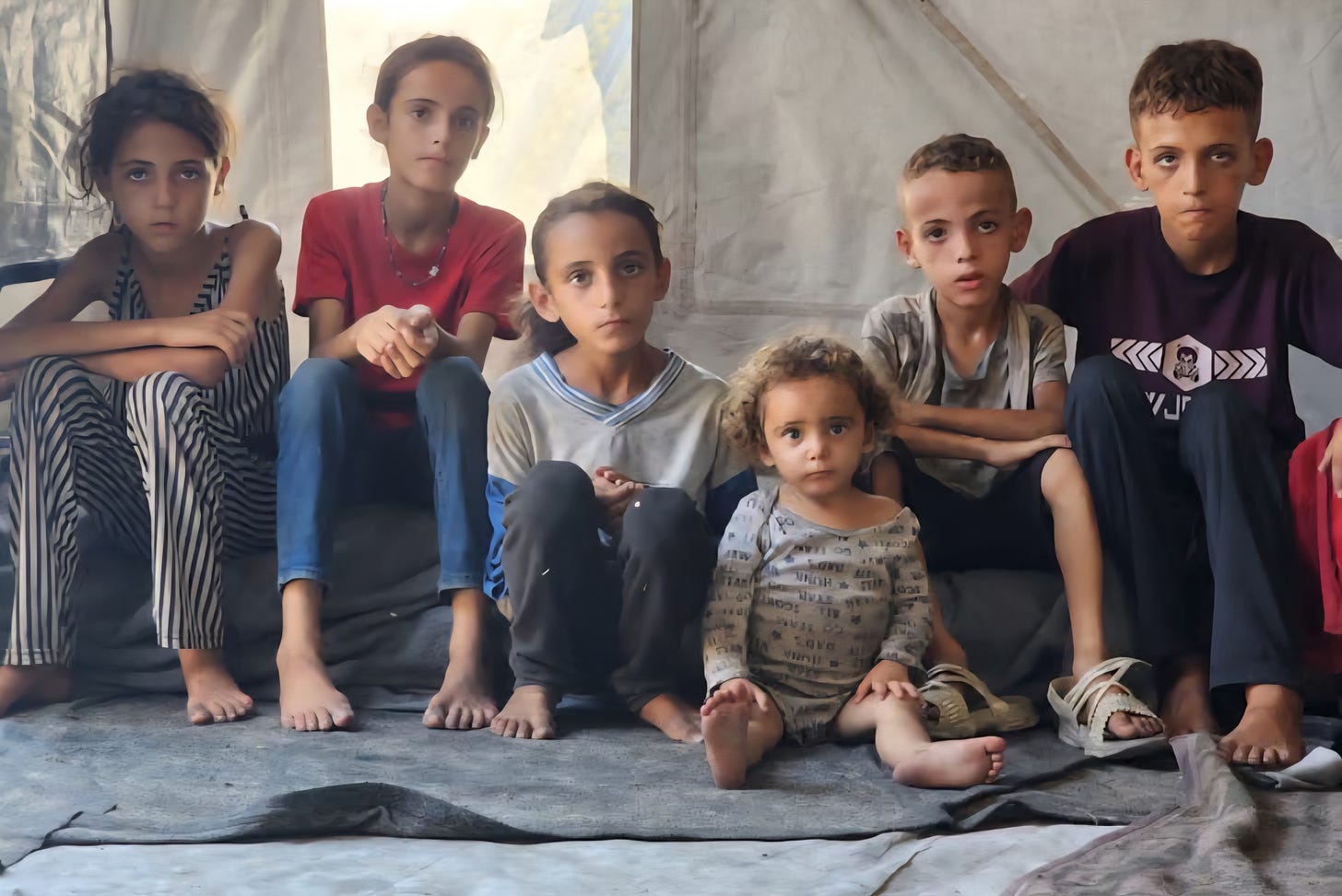Right now, in the smoldering ruins of Gaza, more than 100,000 women and children are hovering on the edge of death. Not food insecurity. Not malnutrition. Starvation. The kind that kills. The kind we read about in history books when we want to feel like we’ve learned something. But we haven’t. The World Food Program says Gaza is at “astonishing levels of desperation.” Doctors are watching babies die with nothing to offer but water. Mothers search for flour like it’s oxygen. Toddlers lie limp on concrete hospital beds while bombs fall in the distance. And the world scrolls on. Gaza is not just under siege — it’s being starved to death. Slowly. Intentionally.
FOR ADULTS, STARVATION IS A DESCENT INTO HELL
It starts with hunger. Loud, aggressive hunger. A growling, feral emptiness that pushes out every thought but food. You might feel lightheaded, angry, cold. You fantasize about bread. You would kill for salt. Your stomach cramps and twists. But the pangs eventually vanish — not because your body’s healed, but because it’s given up. The systems that once screamed now go quiet. You stop burning fat and begin eating your muscles. Your skin thins. Your face hollows. Your ribs show through your shirt.
Your body is cannibalizing itself to keep you alive, but it is not sustainable. Your heart rate slows. Your blood pressure crashes. You grow too weak to walk. The smallest cut becomes infected. Your immune system collapses. Your breath smells like acetone. You lose hair. You lose speech. You lose memory. You lose hope. And still, somehow, you keep waking up. You wake to pain. To confusion. To a world where even dying feels like a distant luxury.
YOUR MIND DISAPPEARS BEFORE YOUR BODY DOES
Starvation doesn’t just attack the body. It takes the brain. You forget names. You forget how to speak. You hallucinate. You talk to people who aren’t there. You weep, or rage, or go completely still. Some curl into a corner and speak gibberish. And some just sit — hour after hour — eyes wide open, staring into nothing, waiting. Your thoughts decay. Your consciousness frays. You aren’t dying in peace. You are unraveling, thread by thread, in front of the people you love.
By the end, your blood is thick with toxins. Your body can no longer digest food, even if it were offered. You may have seizures. You may stop breathing in your sleep. You may live long enough to feel your organs fail. Or you may not. But either way, starvation is not a quiet death. It is not merciful. It is not quick. It is the body screaming its final prayers into a void that never answers.
FOR A TODDLER, IT’S EVEN WORSE
A toddler doesn’t know what calories are. They don’t know why they’re hungry. They only know they hurt. They cry. They reach for their mother. They get carried to an aid site, only to be sprayed with pepper gas. They scream — until they can’t. Their strength leaves them first. Then their voice. Then their eyes go blank. Then their limbs stiffen. They were born healthy. They were learning to walk, to talk, to laugh. And now they’re being dismantled — cell by cell — while the adults argue over ceasefire terms and tweet about tunnels.
A baby doesn’t have the reserves an adult has. They don’t have months. They don’t even have weeks. Their bodies were built for love, not for siege. When milk runs out, when formula isn’t found, when lentils are the only meal in a day, their bodies fold in on themselves. Their bellies bloat. Their skin dries and cracks. Their brains stop growing. They can’t regulate temperature. They can’t fight infection. Their life disappears without language. Without understanding. Without dignity.
PARENTS WATCH THEM DIE — POWERLESS, PARALYZED, FORGOTTEN
There is nothing in this world like watching your child die of hunger. Nothing. Parents in Gaza are holding their children and hearing doctors say, “The treatment is food and water.” That’s it. That’s all that’s needed — and it cannot be given. The mother stops producing milk because she’s starving too. The father walks through bombed streets hoping to find a sack of flour and comes back empty-handed or not at all. The toddler dies. The mother buries them. Then wakes up and tries to keep the next one alive.
Parents in Gaza are not victims of fate. They are victims of geopolitics. They are being punished for where they live, for who used to “govern” them, for refusing to vanish. And their babies are paying the price. This is not about food scarcity. There is food. It is being withheld. It is sitting behind blockades. It is stacked on pallets, guarded by bureaucracy and bullets
THIS IS NOT A NATURAL DISASTER. IT’S A CHOICE.
Israel blames Hamas. Hamas blames Israel. The U.N. says it can’t safely deliver food. The United States says it’s doing all it can. Meanwhile, hundreds of children are starving to death while thousands of Gazans have been shot while trying to reach food. And in the middle of it all, the babies keep dying — not from lack of aid, but from lack of access to it. They are being starved with full knowledge of the international community.
This isn’t famine. This is siege warfare.
This isn’t tragedy. This is cruelty.
HISTORY WILL NOT FORGIVE US
When the war ends — if it ever ends — and the rubble is cleared, and the reports are filed, we will look back at this moment and see not just death but deliberate neglect. We will see children turned to skeletons while world leaders spoke in passive voice. We will see a generation wiped out by silence, by delay, by cowardice.
There is still time. The borders could open. The aid could flow. The babies could be fed.
But every day we wait, more of them cross the invisible line between the living and the forgotten.
And when they go, they do not go quickly.
They go slowly.
Painfully.
Quietly.
Exactly the way the architects of this war intended.
This post has been syndicated from Closer to the Edge, where it was published under this address.

